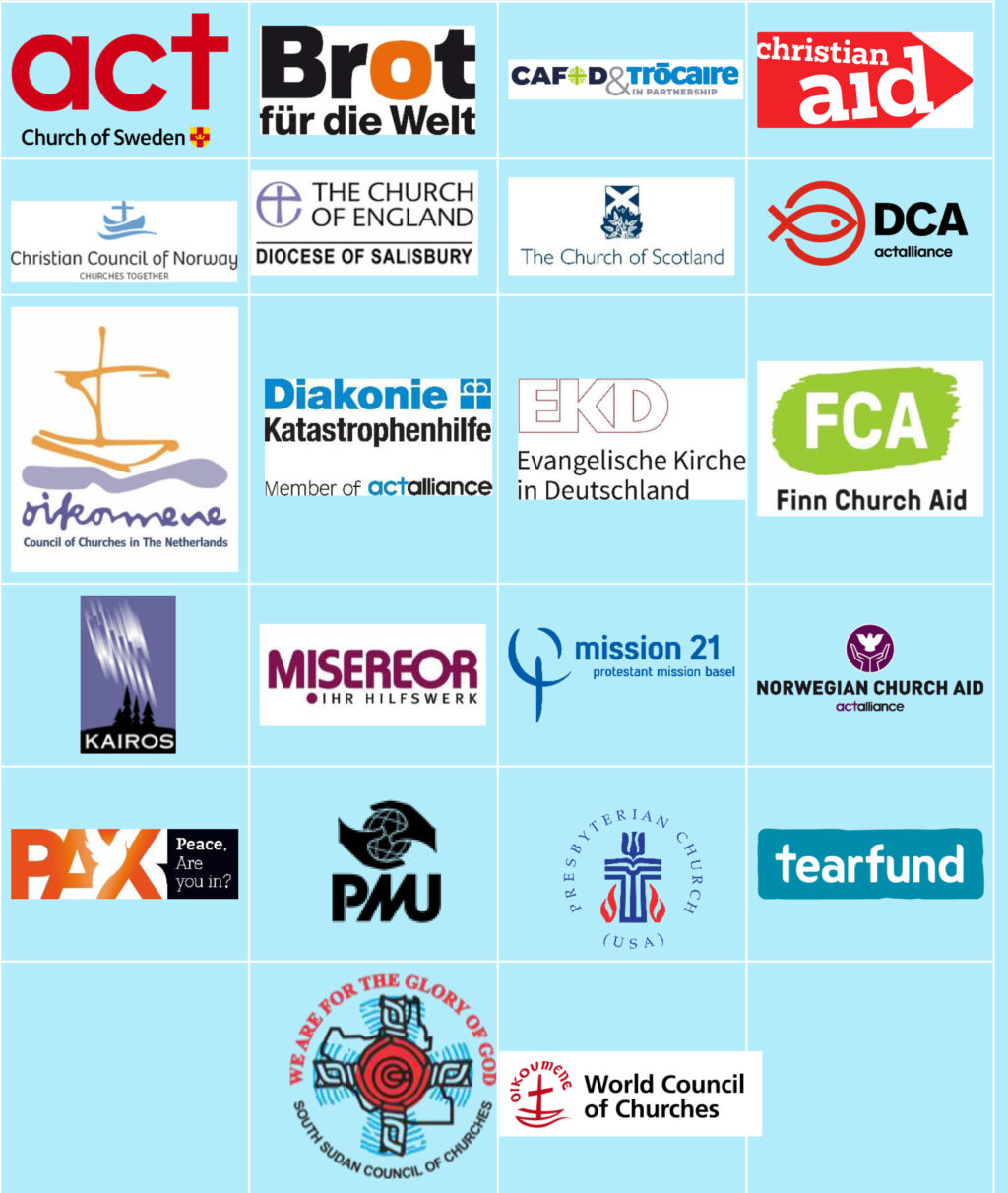SOUTH SUDAN: On South Sudan’s 10th Anniversary of Independence Faith Leaders Emphasize Peace Restoration

Sr. Jecinter Antoinette Okoth, FSSA
As the world’s youngest country marks its 10th anniversary of independence, various churches, faith-based organizations and members of the Ecumenical Network of South Sudan (ENSS), have stressed the need for peace restoration in a country that has experienced “protracted armed conflicts which has not only destabilized peace but also retarded the socio-economic development of the country.”
In a collective statement, 22 faith-based organizations express solidarity with various actors in the society including children, youths, men, women, and survivors of violence who “for many years have borne the burden of conflicts and injustice, instead of enjoying the fruits of a new system” and yearn for peace in the country.
“We would like to draw attention to the urgent need for peace and a transparent governance system with binding laws and implementation of those laws in South Sudan,” the concerned faith organizations have highlighted on Friday, July 9, the day of anniversary adding that, “We urge parties to the conflict in South Sudan to lay down arms, uphold the protection of civilians, to prohibit their respective forces to commit, command or condone acts of violence including sexual violence.”
They note that the implementation of the Revitalized Agreement on the Resolution of Conflict in the Republic of South Sudan (R-ARCSS) signed in 2018 has been “slow” and have urged the government to take the necessary step “like the current constitution making process to build on the principles of justice, freedom, equality, dignity, and political and economic emancipation,” emphasizing that all citizens need “to actively participate in the permanent constitution making process.”
Lamenting on the continual violence in various areas of the country, where civilians continue to suffer, being killed, displaced, sexually abused, or starved, members of the ENSS have called upon the national, regional and international community “to encourage the government in Juba to implement the peace agreement, to mitigate the looming crises in South Sudan.”
“The government must engage the non-signatories to the R-ARCSS in a productive dialogue. In order to enable full civilian protection, the government needs to pay greater attention to transform and unify the army to include all the communities in South Sudan,” reads part of the Friday statement and it adds, “Special attention must be paid to transitional justice, accountability, compensation, and reconciliation processes to overt cycles of revenge in South Sudan.”
The concerned faith organizations have further asked government together with international community and United Nations (UN) agencies “to urgently provide increased funding to locally driven, church and women led peace initiatives, “to comprehensively address the root causes and long-term effects of conflict through advocacy, neutral forums, healing and reconciliation.”
“This funding should be long-term and flexible to enable communities to respond to changing dynamics and to sustain any progress,” they added.
Members of the ENSS have further reiterated solidarity with all actors” who undertake invaluable peace work at a local level to mend and restore relationships, monitor potential violence, prevent and manage intercommunal conflicts while taking care of the trauma under most difficult circumstances.”
“We express our solidarity with the millions of refugees and internally displaced people; there needs to be a lasting peace and a safe environment, so those who were forced to leave their homes can return. We urge the church and its council to keep unity and to play a positive role throughout,” they added.
In a separate statement issued to mark the 10-year anniversary dated Friday July 9th, members of South Sudan Council of Churches (SSCC) have highlighted that when South Sudan attained independence in 2011, there was “a new ray of hope, optimism and reign of sustainable peace with prosperity.”
Unfortunately they noted, “Those jubilations and celebrations were short-lived as the nation in just a span of two years descended into violent conflicts that have devastated all aspects of South Sudanese lives.”
The church representatives bemoan the continued “inter-communal violence, increasing cases of sexual violence, revenge killings, land grabbing and child abduction,” leading to “continued groaning in pain, anguish, turmoil, despair, and misery as lives are lost every day in every corner of the country.”
They note that the slow progress and implementation of R-ARCSS which was signed as the “most viable framework for peace and a beacon of hope for South Sudanese…is very worrying and shattering all hopes to restore stability and there appears to be a lack of political will.”
Members of the SSCC declare the second decade of South Sudan’s Independence as a period of a new beginning of peace, justice, freedom, forgiveness, reconciliation and prosperity for all the people.
“It must not be another lost decade,” they underscored and added, “It is an opportunity to rescue our people from imposed destitution and sustain their livelihoods. In this second decade, we must stop the self-sabotage of our collective future and prosperity, we must reflect on what went wrong in the first decade after independence, learn from those experiences and rise to the collective responsibility of this generation to deliver our country from its current predicaments. Never again shall our people be merciless victims of our own hands.”


